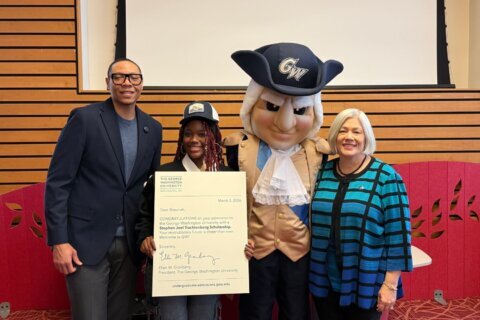To counter violence against D.C.’s LGBTQ community members, Mayor Muriel Bowser’s Office of LGBTQ Affairs discussed recommendations to improve public safety during a Wednesday night forum.
Members of D.C. police’s LGBT Liaison Unit and leaders of nongovernment agencies involved in helping victims of domestic violence recommend that LGBTQ community members have plans for their own safety.
“Everyone in our disadvantaged community should have some form of safety plan, and that is in terms of relationships, going out with friends, just going through your everyday life,” said Sgt. Nicole Brown of the LGBT Liaison Unit.
Members of the panel discussion pointed out that members of the LGBTQ community are often reluctant to contact police, unsure of how they may be treated by responding officers. Members of the LGBT Liaison Unit said that dynamic underscored the importance and value of their unit’s work.
The forum recommended that when incidents occurred and individuals declined to call the police, the victim should still try to document the event.
“There are so many times when folks get to us, and they say, ‘I didn’t want to press charges and go to the police, but now I do,’ and the police turn around and say, ‘What documentation do you have?'” said Pierre Berastain, deputy director of District Alliance for Safe Housing.
Berastain recommended sending the document to a trusted person or even emailing it to a safe address.
All the participants seemed to agree that promoting awareness of the District’s mental health resources can go a long way in boosting public safety in the LGBTQ community.
“I have not met a queer person that hasn’t experienced some type of trauma, and most of that trauma, most of that rejection, most of that discrimination, goes uncared for,” said June Crenshaw, executive director of the Wanda Alston Foundation, which provides shelter and support for D.C.’s LGBTQ youth.
“I think there is an opportunity to destigmatize the fact that we all need mental health and behavioral health support, and it should be as common as going to our doctor on an annual basis.”








